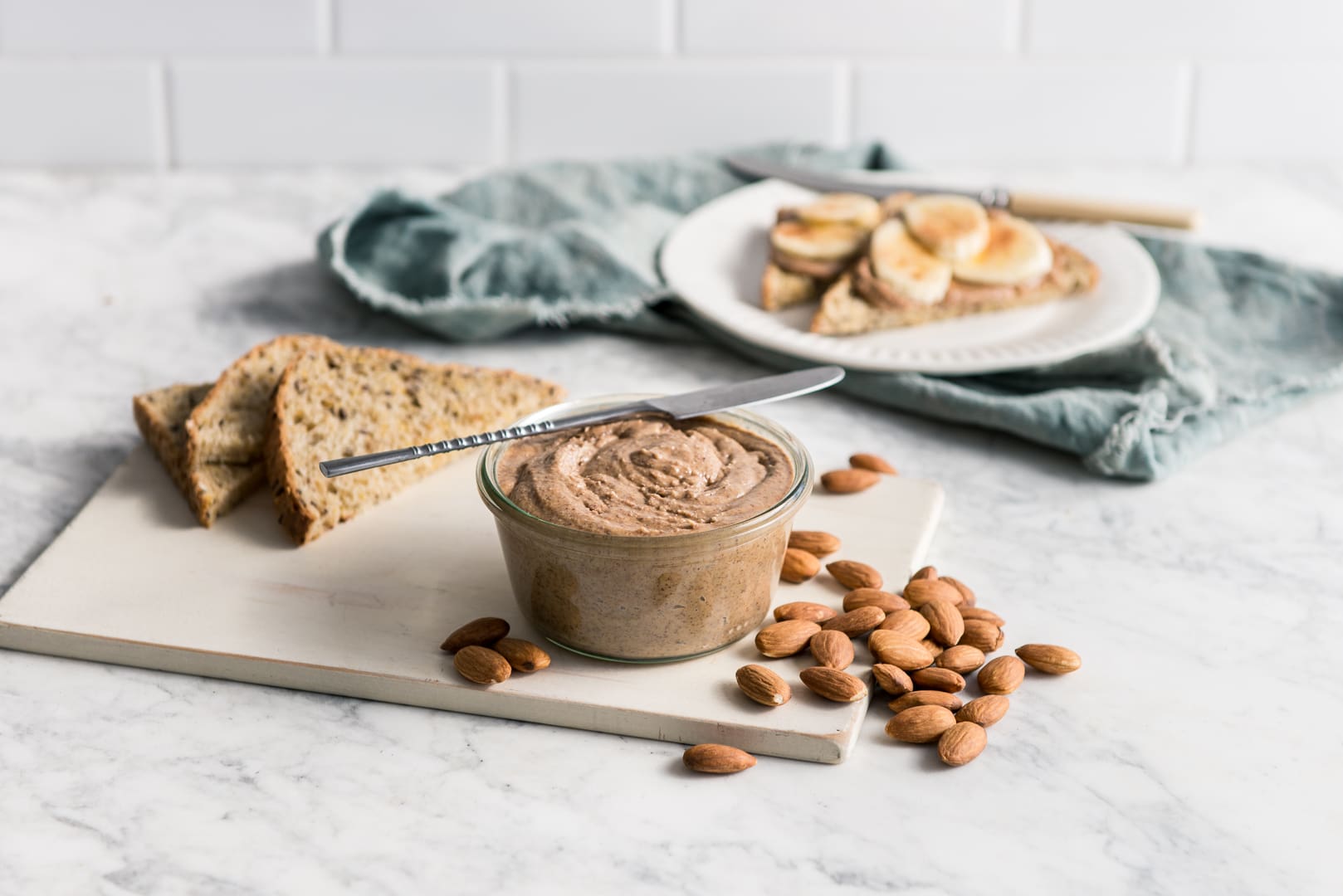Nut butters

Nut butters
Step into any grocery store and you’ll find shelves full of nut butters – from peanut, to macadamia, cashew and almond butters, to name a few. Many of us now even whip up this popular spread at home!
Packed with nutrients, delicious and versatile – it’s easy to see why nut butters have become a go-to staple in many Australian households.
Did you know? The daily target of nuts is around 30g (or a handful). That equates to around 2 tablespoons of nut butter.
How do nut butters stack up?
The good news is that nut butters (or nut pastes, as they’re sometimes called) are a nutrient-dense food, providing many of the benefits of whole nuts.
The healthiest nut butter contains just one ingredient: nuts! So look for nut butters without added oil, sugar, salt, or other flavours.
Pure nut butters are rich in:
- Heart-healthy unsaturated fats: Around 16g total fat per 2 tablespoon serve
- Plant protein: At around 7g per serving
- Dietary fibre: With around 3g in 2 tablespoons
- And all the nutrients you find in whole nuts, including vitamins, minerals and antioxidants.
The main difference is that the body absorbs more fat from nut butter than whole nuts.
This is because, with whole nuts, some of the fat is ‘trapped’ in the fibrous cell wall of the nuts, meaning not all of it is absorbed by the body. Instead, this is excreted.
When nuts become a butter (or even when they’re finely chopped), the fat is no longer trapped like it is in more ‘intact’ nut forms. This means the fat in nut butters is more available to be absorbed by the body, compared with whole nuts.
Using nut butter at home
Here are seven ways to add nut butter to your day:
- Stir nut butter through your morning porridge
- Dip veggie sticks or sliced apple into nut butter for an easy snack
- Bring some ‘satay’ to a chicken and salad wrap with nut butter
- Add to stir-fries or curries for a nutty depth of flavour
- Blend nut butter into your favourite smoothie
- Spoon into the centre of a date for a nutritious snack on the go
- Add to wet ingredients at the creaming stage of baking, such as for biscuits.
Nut butters are a useful option for infants or younger children at risk of choking on whole nuts, or for people who have difficulty chewing, including the elderly.
How to make nut butter
Interested in making your own nut butter? Simply grab your food processer and some nuts, and start blending!
Keep in mind that it may take 10-20 minutes for nuts to become a smooth butter. They will typically look like dry sand for a while, before becoming a creamy, delicious paste.




Tip: As with nuts, nut butter is best stored in the fridge to keep it fresher, for longer.

